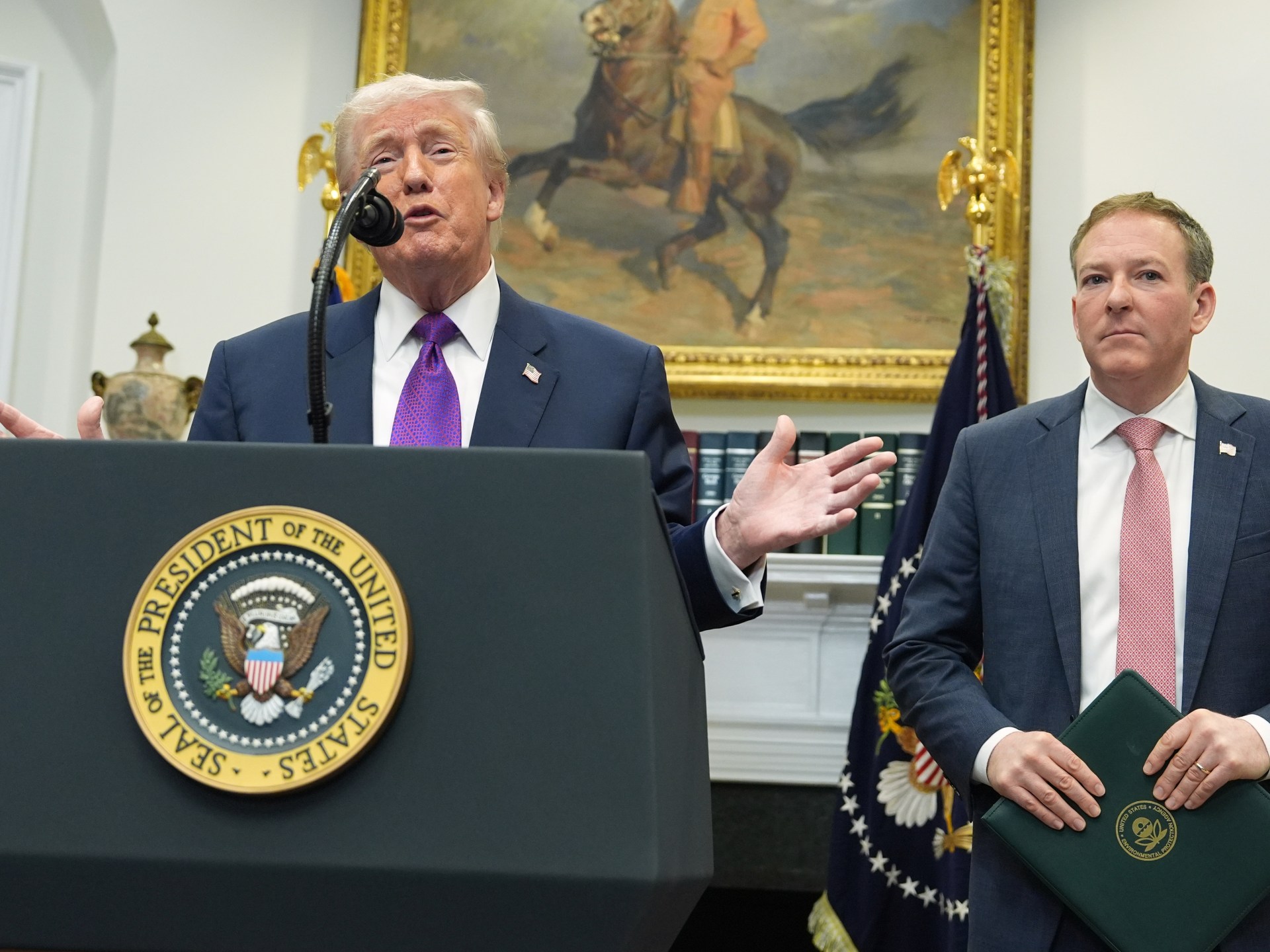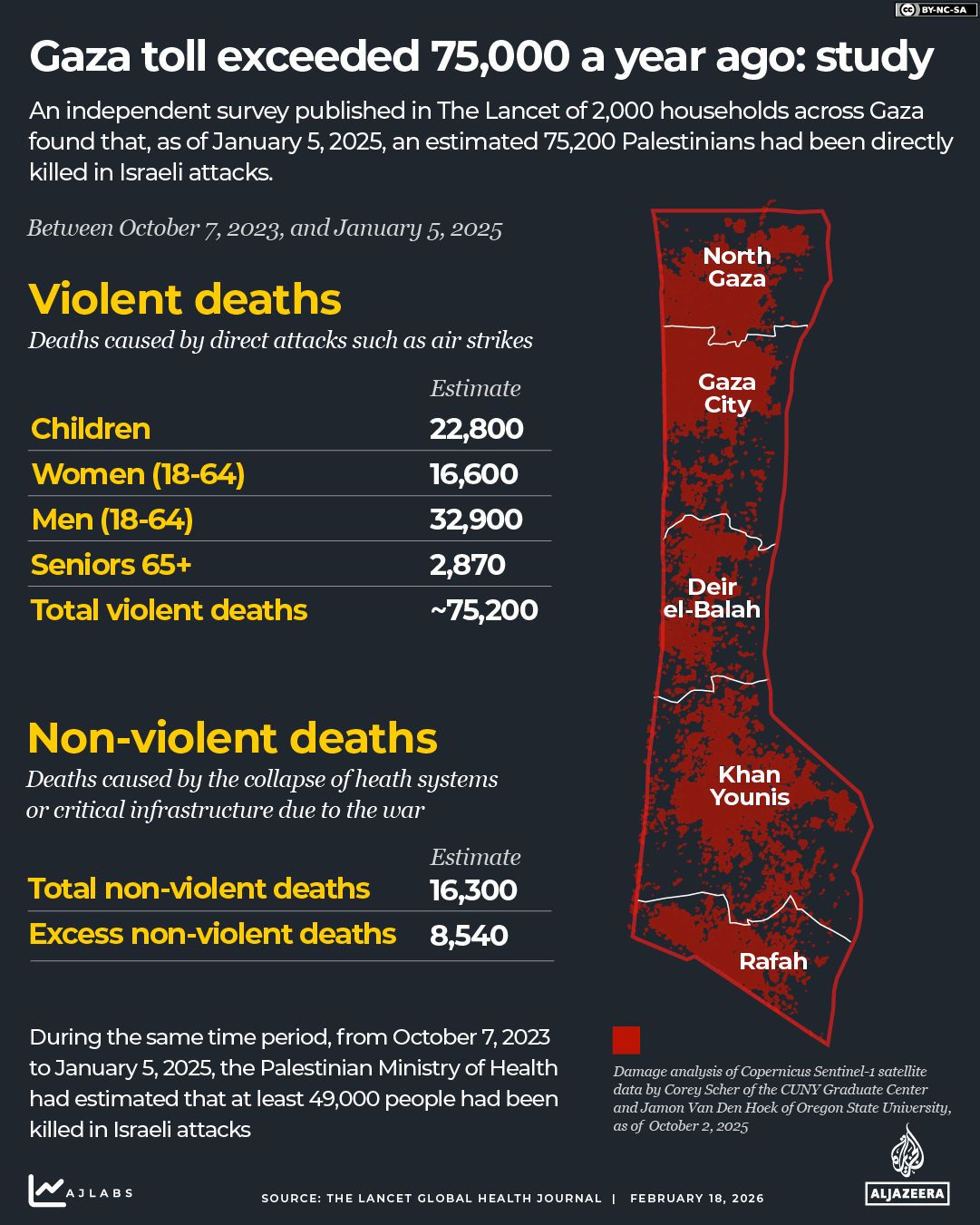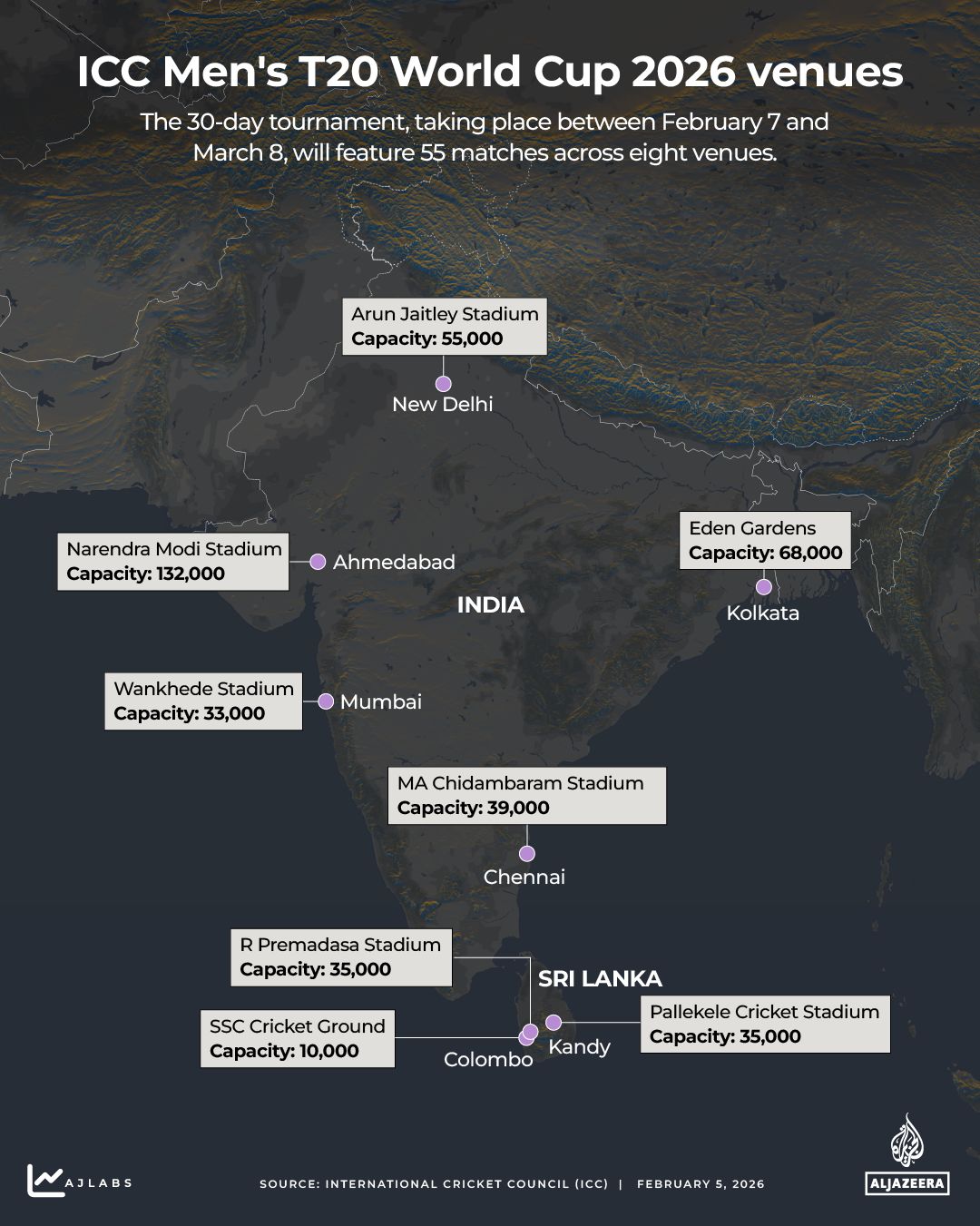More than a dozen health and environmental advocacy groups have filed a lawsuit against the Environmental Protection Agency (EPA) in the United States over its decision to withdraw a key climate change finding from 2009.
That determination, known as the endangerment finding, had established that greenhouse gases are a risk to public health and environmental safety, given that they are the primary drivers of climate change.
Recommended Stories
list of 3 itemsend of list
But under President Donald Trump, the endangerment finding was rescinded on February 12.
That prompted Wednesday’s lawsuit, the first of its kind, which alleges that the Trump administration’s decision will risk the health and welfare of US citizens.
“Repealing the Endangerment Finding endangers all of us. People everywhere will face more pollution, higher costs, and thousands of avoidable deaths,” Peter Zalzal, the associate vice president of clean air strategies at Environmental Defense Fund, one of the plaintiffs, said in a statement.
The endangerment finding was considered a keystone policy for environmental regulations in the US, serving as the legal underpinning for policies to restrict greenhouse gas emissions and push clean-energy programmes.
But the Trump administration has led a movement to withdraw from climate-change initiatives, both domestically and on an international scale.
Withdrawing from clean-energy initiatives
Upon returning to office in January 2025, Trump announced he would once again pull the US out of the Paris climate accord, as he had during his first term.
More recently, on January 7 of this year, the Republican leader issued an executive order directing his government to end its engagement with dozens of international organisations and treaties, among them the Intergovernmental Panel on Climate Change and the United Nations Framework Convention on Climate Change.
Trump had campaigned on the platform of slashing regulations and reinvesting in fossil fuels, often using the slogan, “Drill, baby, drill.”
He has since taken steps towards new oil exploration on federal lands and offshore, and just this month, he announced the Department of Defense would prioritise coal for its energy production.
The president has coupled those actions with statements casting doubt on the science of climate change, which has been supported by decades of evidence.
In a speech to the UN General Assembly in September, for instance, Trump scolded world leaders for attempting to combat climate change.
“It’s the greatest con job ever perpetrated on the world, in my opinion,” Trump said.
He proceeded to denounce projections that the global temperatures would warm as a result of large-scale emissions. Those predictions, he said, “were made by stupid people” who had doomed their countries to “no chance of success”.
“If you don’t get away from this green scam, your country is going to fail. And I’m really good at predicting things,” he told the world leaders in the audience.
‘Not a mere rollback’
Rescinding the endangerment finding, however, was one of the most consequential actions Trump has taken on the domestic front to terminate clean-energy initiatives.
The Trump administration hailed the move as “the single largest deregulatory action in US history”.
It has also argued that eliminating the endangerment finding allows US consumers greater choice in their purchase of automobiles, which had previously been subject to emission standards.
But critics argue it effectively collapses more than a decade and a half of environmental regulations, causing tumult even in the motor vehicle industry.
“This is not a mere rollback. The EPA is attempting to completely disavow its statutory authority to regulate greenhouse gases from motor vehicles,” Brian Lynk, a senior lawyer with the Environmental Law and Policy Center, said in Wednesday’s statement.
“This reckless and legally untenable decision creates immediate uncertainty for businesses, guarantees prolonged legal battles, and undermines the stability of federal climate regulations.”
The World Health Organization has estimated that air pollution contributes to more than seven million deaths annually. Wednesday’s lawsuit argues that the US government has a responsibility to protect its citizens from such harms.
There is also an economic angle, though. Proponents of the endangerment finding have pointed out that its repeal puts the US behind in developing innovations to address climate change and foster renewable energy.
With many countries pushing for fuel emission standards, US-made vehicles could lose export markets overseas, critics argue.






